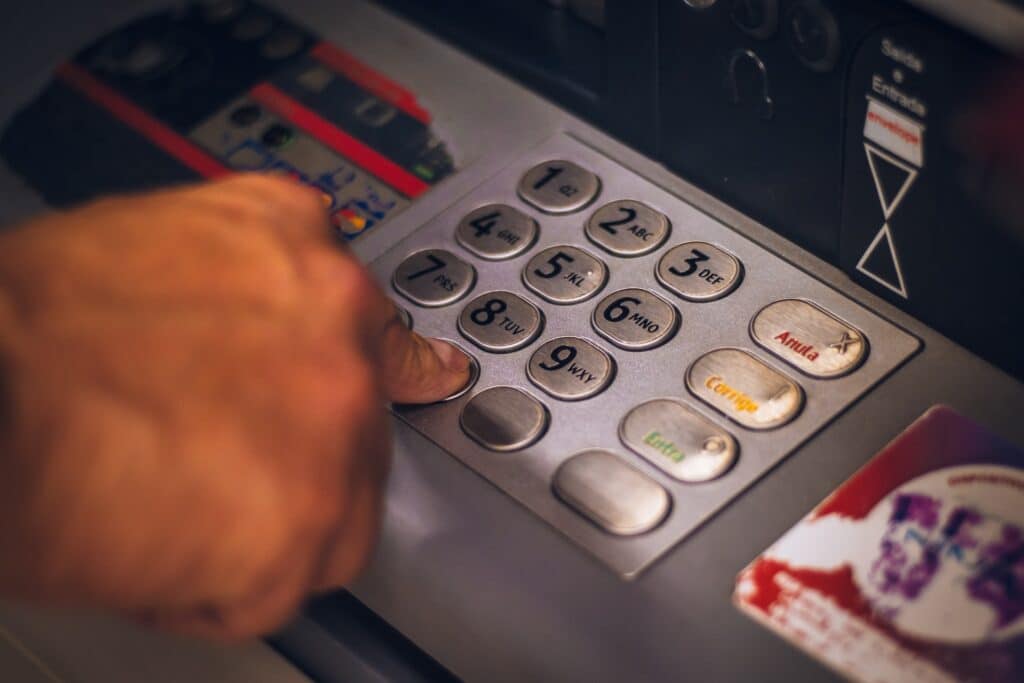Paying with #Bitcoin at a restaurant in Finland 🇫🇮
— Bitcoin Magazine (@BitcoinMagazine) September 17, 2023
"That was easy!" 🙌
pic.twitter.com/dSLhwzXFwd
A
A
Bank fees are increasing: can bitcoin benefit from it?
Thu 01 Feb 2024 ▪
5
min read ▪ by
Getting informed
In 2024, not only are electricity rates increasing. Bank fees are also experiencing a significant hike. Bitcoin, which originally aimed to be a peer-to-peer electronic cash solution, could it become a serious alternative to increasingly expensive banking services?

A Significant Increase in Bank Fees
After a stable year in 2023, banks are catching up. In 2024, bank fees increase by an average of 2.5% to 3%. This is revealed by the consumer association CLCV in its annual study. The reasons include account management fees and the cost of bank cards used for everyday payments.
Whether one is a business, a small consumer, or a client with a large portfolio, the increase affects everyone. Thus, an average customer will have to spend 66 euros more than in 2023 for banking services. For bigger clients, this increase reaches an average of 207 euros.

Bitcoin, Electronic Cash to the Rescue?
The change in banking fees shows just how central payments and associated services are in our daily lives. Yet, there are few ways to influence the tariffs set by banking players. These entities decide arbitrarily and take advantage of one of the most lucrative industries in the world without counter-power: the payment industry. And when paying becomes more and more expensive, consumers have no choice but to accept it.
In light of this, bitcoin might have a card to play. Since its creation in 2009, BTC was indeed built on the resentment towards banks. Their involvement in the 2008 financial crisis greatly tarnished the reputation of an entire industry. Their rescue by public funds even inspired Satoshi Nakamoto to inscribe a reference to this episode in the first block. Because before being a speculative asset, bitcoin is first and foremost a peer-to-peer payment means without an intermediary. That is at least its initial promise.
Scalability Limits
Nevertheless, BTC cannot fully replace traditional payment networks. The bitcoin protocol has never truly succeeded in optimizing its scaling without compromising security or the decentralization of its network: hence the famous blockchain “trilemma”. Scaling up the network without increasing network fees therefore becomes impossible.
Just like bitcoin, the banking sector needs vast amounts of energy to function. Some estimates account for several thousands of TWh per year to operate this complex system, whose impact has never really been measured. Still in development, bitcoin is quite limited in the number of transactions it can handle. The network can only handle up to 7 transactions per second (TPS) with a block generation time of ten minutes. A figure that tends to present bitcoin as digital gold 2.0, rather than an efficient means of payment. It’s the eternal debate that has been igniting discussions within the bitcoin community since 2009.
The Lightning Network to the Rescue of Bitcoin
However, the recent developments of the Lightning Network might change the game in the battle of online and physical payments. This second layer of blockchain (layer-2) works by optimizing transactions. By bundling them in common “packets,” the LN allows for soaring to over 1 million TPS, without sacrificing the security or initial decentralization of the network. For comparison, the Visa network can handle up to 24,000 transactions per second. Thus, paying for your bread or coffee in BTC becomes feasible, with zero fees, instantaneously and above all, without the need for a bank account. Many businesses around the world are trying out this method, such as this restaurant in Finland:
Should we boycott banks and their constantly increasing fees in favor of bitcoin? While this solution does not yet seem very popular, more and more individuals and merchants are looking for alternatives to a monopoly that is not always beneficial for consumers. But despite the encouraging development of the Lightning Network, bitcoin will most likely never replace traditional solutions, which have also demonstrated certain efficiency in handling transactions and banking services.
Maximize your Cointribune experience with our "Read to Earn" program! For every article you read, earn points and access exclusive rewards. Sign up now and start earning benefits.
A
A

Fascinated by the history of Bitcoin and the cypherpunk movement, I think that citizens must reinvest in the field of currency. My goal? To democratize and make visible the potential of blockchain and cryptocurrencies.
DISCLAIMER
The views, thoughts, and opinions expressed in this article belong solely to the author, and should not be taken as investment advice. Do your own research before taking any investment decisions.